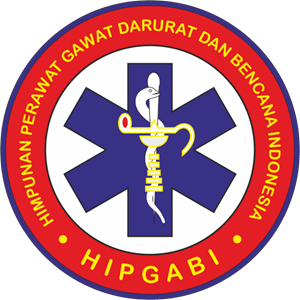Optimization of Self Monitoring Blood Glucose in Diabetes Mellitus Patients in Detecting Hypoglicemia Episodes: Literature Review
Downloads
Introduction: Diabetes mellitus is a chronic disease that continues to increase from year to year. The act of detecting hypoglycemic episodes is a must for a diabetic patient. This study aims to present the optimization of blood glucose self-monitoring measures in patients with diabetes mellitus and to review some of the literature on this topic.
Methods: This study is a form of literature review of articles with the theme Optimization Self Monitoring Blood Glucose in diabetes mellitus patient detecting hypoglicemia episodes. Articles in this study came from the electronic databases of Google Scholar, PubMed, Proquest, Scopus and Science Direct from 2005 to 2020.
Results: Search results using the keywords Self Management Blood Glucose, Hypoglicemia, Diabetes Mellitus were obtained from 57 articles. 18 articles that met the inclusion criteria were then reviewed for their full text.
Conclusion: Self Monitoring Blood Glucose is a preventive measure in detecting hypoglycemic episodes. This intervention is the best choice for patients to prevent further complications.
Bird, D., Oldenburg, B., Cassimatis, M., Russell, A., Ash, S., Courtney, M. D., .. Friedman, R. H. (2010). Randomised controlled trial of an automated, interactive telephone intervention to improve type 2 diabetes self- management (telephone-linked care diabetes project): Study protocol. BMC Public Health, 10, 599.doi:http://dx.doi.org/10.1186/1471-2458- 10-599
Black, J., & Hawks, J. H. (2009). Medical Surgical Nursing : Clinical Management for Positive Outcome (8th ed.). St. Louis: Elsevier
Brady, T. J., Murphy, L., Colmain, B. J. O., Beauchesne, D., Daniels, B., greenberg, M., ... Chervin, D. (2013). A Meta analysis of health status, health behaviors, and health care utilization outcomes of the chronic disease self management program. Preventing Chronic Disease, 10, 1-14. https://doi.org/10.5888/pcd10.120112
Castillo, A., Giachello, A., Bates, R., Concha, J., Ramirez, V., Sanchez, C., ... Arrom, J. (2010). Community-based Diabetes Education for Latinos: The diabetes empowerment education program. The Diabetes Educator, 36(4), 586– 594. https://doi.org/10.1177/0145721710371524
Choi, Y.J., Lee, M.S., An, S.Y., Kim, T.H., Han, S.J., Chung, Y.S., Lee, K.W & Kim, D.J., 2011. The Realtionship between Diabetes Mellitus and Health-Related Quality of Life in Korean Adults: The Fourth Korea National Health and Nutrition Examination Survey (2007-2009). Diabetes Metabolism Journal, 35(6), pp. 587-594
Davies, M. J., Heller, S., Skinner, T. C., Campbell, M. J., Carey, M. E., Cradock, S., ... Khunti, K. (2008). Effectiveness of the diabetes education and self management for ongoing and newly diagnosed (DESMOND) programme for people with newly diagnosed type 2 diabetes: Cluster randomised controlled trial. BMJ, 336(7649), 491– 495. https://doi.org/10.1136/bmj.39474.922025.BE
Funnell, M. M., & Anderson, R. M. (2004). Empowerment and self-management of diabetes. Clinical Diabetes, 22(3), 123127. https://doi.org/10.2337/diaclin.22.3.123
Haas, L., Maryniuk, M., Beck, J., Cox, C. E., Duker, P., Edwards, L., ... Youssef, G. (2012). National standards for diabetes self-management education and support. Diabetes Care, 3, 2393 2401. https://doi.org/10.2337/dc12-1707
Hunt, C.W., Wilder, B., Steele, M.M., Grant, J.S., Pryor, E.R., & Moneyham, l. (2012). Relationships Among Self Efficacy, Social Support, Social Problem Solving, and Self Management in a Rural Sample Living with Type 2 Diabetes Mellitus. Research and Theory for Nursing Practice: An International Journak, Vol. 26, No.2, 2012
Kueh, Y. C., Morris, T., Borkoles, E., & Shee, H. (2016). Modelling of diabetes knowledge, attitudes, self-management, and quality of life: a cross-sectional study with an Australian sample. Health and Quality of Life Outcomes, 13, 129. http://doi.org/10.1186/s12955-015-0303-8
Notoatmodjo, S. (2010). Metodologi penelitian kesehatan. Jakarta: PT Rineka Cipta.
Piette, J. D., Weinberger, M., McPhee, S. J., Mah, C. A., Kraemer, F. B.,& Crapo,L. M. (2000). Do automated calls with nurse follow-up improve self-care and glycemic control among vulnerable patients with diabetes? The American Journal of Medicine, 108, 20–27. doi:10.1016/S0002-9343(99)0029
Rosland, A., Kieffer, E. Israel, B., Cofield, M., Palmisano, G., Sinco, B., . . .Heisler, M. (2008). When is social support important? the association of family support and professional support with specific diabetes self-management behaviors. Journal of General Internal Medicine, 23(12), 1992-9. doi:http://dx.doi.org/10.1007/s11606- 008-0814-7
Shaw, J. E., Sicree, R. A., & Zimmet, P.Z. (2010). Global estimates of the prevalence of diabetes for 2010 and 2030. diabetes Research and Clinical Practice, 87, 4-14. doi: 10.1016/j.diabres.2009.10.007
Smeltzer, S.C., & Bare, B.G. (2007). Brunner & Suddarths's textbook of medical surgical nursing. Philadelphia: Lippincott.
Smeltzer, S.C., & Bare, B.G. (2010). Brunner & Suddarths's textbook of medical surgical nursing. Philadelphia: Lippincott.
Copyright (c) 2021 Ceria Nurhayati, Ninik Ambar Sari

This work is licensed under a Creative Commons Attribution 4.0 International License.
1. The journal allows the author to hold the copyright of the article without restrictions.
2. The journal allows the author(s) to retain publishing rights without restrictions.
3. The legal formal aspect of journal publication accessibility refers to Creative Commons Attribution (CC BY).

















